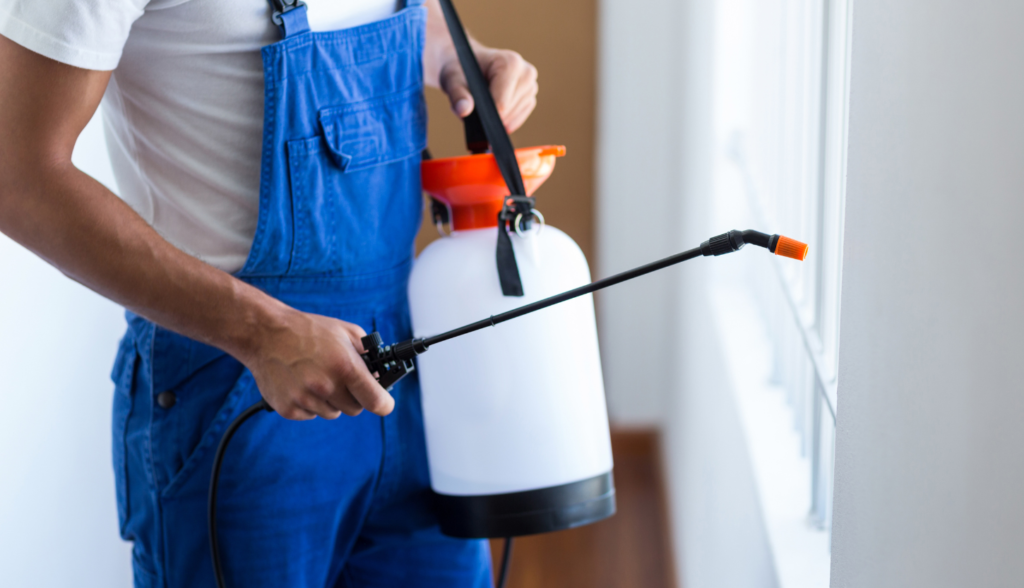Have you recently noticed an influx of unwanted pests in your Madison apartment? You’re not alone. Pests can be a nuisance, cause significant damage, and pose serious health risks. Addressing the problem promptly is crucial, but how do you approach your landlord about this sensitive issue? This article will guide you through the process, providing a step-by-step approach to ensure your concerns are heard and addressed effectively.

Understanding the Problem
Before approaching your landlord, it’s essential to understand the extent and nature of the pest problem. Common pests in Madison, Alabama, include roaches, rodents, ants, spiders, and termites. Each type of pest can create unique issues and require specific treatment methods.
Identifying Common Pests
Recognizing the common pests in Madison can help you accurately describe the problem to your landlord. Detailed knowledge of these pests also indicates that you are informed and concerned about the problem.
| Pest | Description | Common Locations |
|---|---|---|
| Roaches | Brown/black, nocturnal, omnivorous insects | Kitchens, bathrooms, basements |
| Rodents | Mice and rats; small, agile mammals | Kitchens, attics, wall cavities |
| Ants | Tiny insects, often attracted by sugary foods | Kitchens, gardens, bathrooms |
| Spiders | Varied species, some potentially dangerous | Corners, basements, garages |
| Termites | Wood-eating insects causing structural damage | Wooden structures, foundations |
Assessing the Severity
Assess the severity of the infestation. Occasional sightings might not indicate a severe problem, but frequent encounters, visible nests, or damage should be reported. Take note of:
- Frequency of Sightings: How often do you see pests?
- Types of Pests: Identify the species if possible.
- Extent of Damage: Look for chewed wires, droppings, or structural damage.
- Health Implications: Consider any allergic reactions or diseases that pests may spread.
Preparing to Approach Your Landlord
Preparation is key to having a productive conversation with your landlord. Gathering evidence and understanding your legal rights can help you build a strong case.
Gather Evidence
Documenting the problem is crucial. Take pictures of pests and any damage they’ve caused. Keep a log of sightings and note the dates, times, and locations. This evidence will support your claims and demonstrate the seriousness of the issue.
Know Your Rights
In Alabama, landlords are required to maintain habitable living conditions, which include pest control measures. Familiarize yourself with local tenant rights:
- Implied Warranty of Habitability: Landlords must ensure rental properties are free from health and safety hazards, including pests.
- Lease Agreement: Review your lease to check for clauses relating to pest control responsibilities.
Plan Your Approach
Consider your landlord’s preferred communication method, whether email, phone, or in-person meetings. Choose a respectful and professional tone. Plan to discuss the following points:
- Issue Description: Clearly describe the pest problem.
- Evidence: Present the evidence you have gathered.
- Impact: Explain how the pests affect your living conditions.
- Desired Outcome: Specify your expectations for resolution, whether it’s extermination services or maintenance repairs.
Approaching Your Landlord
Now that you’re prepared, it’s time to approach your landlord. Effective communication is critical for a positive outcome.
Initial Communication
Start with a formal letter or email outlining the problem. This official documentation serves as a record of your complaint. Here’s a sample template to guide you:
[Your Name]
[Your Address]
[City, State, Zip Code]
[Email Address]
[Phone Number]
[Date]
[Landlord’s Name]
[Landlord’s Address]
[City, State, Zip Code]
Dear [Landlord’s Name],
I hope this message finds you well. I am writing to bring to your attention a severe pest problem in my apartment at [apartment number].
Since [date], I have noticed [description of pests] in [specific areas of the apartment]. Despite maintaining a clean living environment, the issue persists, and it has begun to affect my quality of life. Attached are photographs and a log of sightings that highlight the extent of the problem.
As stipulated in our lease agreement and Alabama state law, I kindly request prompt action to address this issue. I would appreciate it if you could arrange for professional extermination services or any necessary repairs to prevent further infestation.
Please let me know when we can discuss this matter in person. I am available at [your availability].
Thank you for your attention to this serious matter.
Sincerely,
[Your Name]
Follow-Up Communication
If there’s no response within a reasonable time frame, follow up with a phone call or an in-person visit. Express your concerns calmly and reiterate the points made in your initial communication. Keep a record of these follow-up attempts.
Escalating the Issue
If your landlord is unresponsive or refuses to address the problem, you may need to take further action:
- Contact Local Authorities: Report the issue to the Madison Housing Authority or the city’s health department.
- Seek Legal Advice: Consult with a tenant rights attorney for guidance on further legal action.
- Withhold Rent: In some cases, withholding rent until the problem is fixed may be an option, but this should only be done after seeking legal counsel.
After the Conversation
Once your landlord agrees to take action, it’s important to ensure the resolution is effective and lasting.
Professional Extermination
Extermination should be handled by licensed professionals. Ensure that exterminators use safe and effective methods. Ask for a report detailing the pests found and the treatment administered.
Maintenance and Repairs
Sometimes, pest problems stem from structural issues like cracks, leaks, or poor sanitation. Ensure your landlord addresses these underlying problems to prevent future infestations. Regular communication and inspections can help maintain pest-free living conditions.
Preventive Measures
Taking preventive measures is crucial to avoid future pest problems. Here are some tips:
- Cleanliness: Keep your apartment clean and free from food debris.
- Store Food Properly: Use airtight containers to store food items.
- Seal Entry Points: Use caulk or weather-stripping to seal cracks and crevices.
- Regular Inspection: Conduct regular inspections for signs of pests and report any issues immediately.

Conclusion
Addressing pest problems in your Madison apartment can be daunting, but approaching your landlord professionally and respectfully can facilitate a swift and effective resolution. By understanding the problem, preparing thoroughly, documenting your case, and communicating clearly, you can ensure your concerns are taken seriously and your living conditions are improved. Remember, both you and your landlord have a vested interest in maintaining a clean and habitable living environment. Working together can help ensure that your apartment remains a safe and comfortable home.

